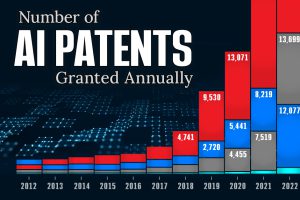The Rise of the Chief Data Officer (CDO)
Data has taken on a central role in our daily lives, permeating nearly every activity in the business and public sectors. It’s now considered an essential piece of the puzzle for any serious organization, enabling everything from game-changing insights to the birth of entire new technologies or business models.
In fact, data is so important nowadays that some experts are saying that it’s the most valuable resource in the modern economy, even going as far as describing data as the “new oil”. While not everyone agrees with this kind of hyperbole, it’s fair to say that how organizations approach data will be a major determining factor for future growth and success – and thus, having someone to make the most of data is crucial.
To guide these kinds of decisions, many organizations are making a structural change to their C-suite: the addition of a Chief Data Officer (CDO).
The Changing C-Suite
The set of executives that reports to the modern CEO is constantly evolving, and over the last couple of decades we’ve seen the implementation of other tech-focused positions such as the Chief Information Officer (CIO) and the Chief Technology Officer (CTO).
The CDO is the newest addition to the mix, and it’s a job that’s responsible for enterprise wide governance and utilization of information as an asset. This includes oversight over data processing, analysis, data mining, information trading, and other means.
Today’s infographic comes from Raconteur, and it breaks down organizational perspectives on the role of the CDO, along with how execs in this fast-evolving position are allocating their time to achieve their mandates.
The CDO Mandate
Approximately 90% of large global organizations will have a CDO by 2019, and the general mandate for most CDOs will be as follows:
Data Integrator:
Raw internal data exploration, diagnostic analytics, and value-added data quality and integration
Business Optimizer:
External context and benchmarking, cost-reduction analysis, and business-driven growth opportunities
Market Innovator:
Data monetization, cognitive trend analysis, and innovative business models
Meanwhile, Gartner breaks it down in a similar way, suggesting that CDOs spend 45% of their time focused on value creation or revenue generation, 27% on risk mitigation, and 28% on cost savings and efficiency.
Who Makes a Good CDO?
As with any new type of role, there are always questions about how to get someone that is the right fit.
Here is the background of successful CDOs thus far, according to NewVantage Partners:
| Background | Percentage of Successful CDOs |
|---|---|
| External change agent | 34% |
| Company veteran | 32% |
| Data scientist | 15% |
| Results-driving line executive | 13% |
| Technology executive | 8% |
Like the constantly evolving landscape of data itself, the role of CDO will keep changing in the future as more organizations search for new ways to make the most of this precious resource.





